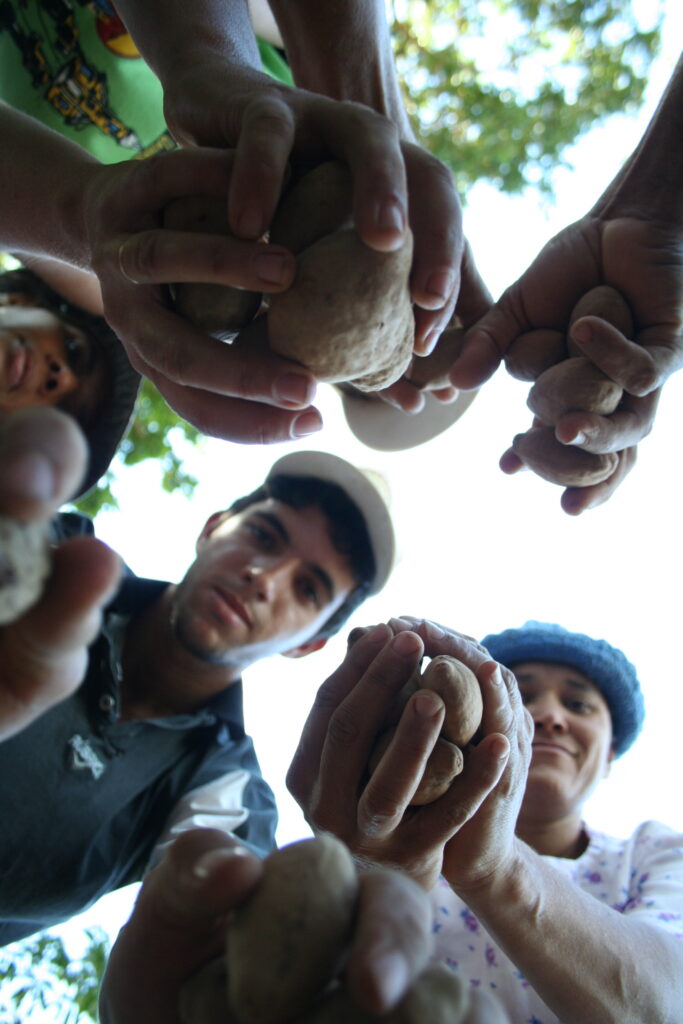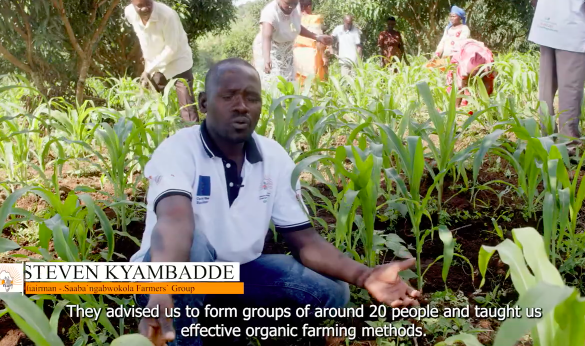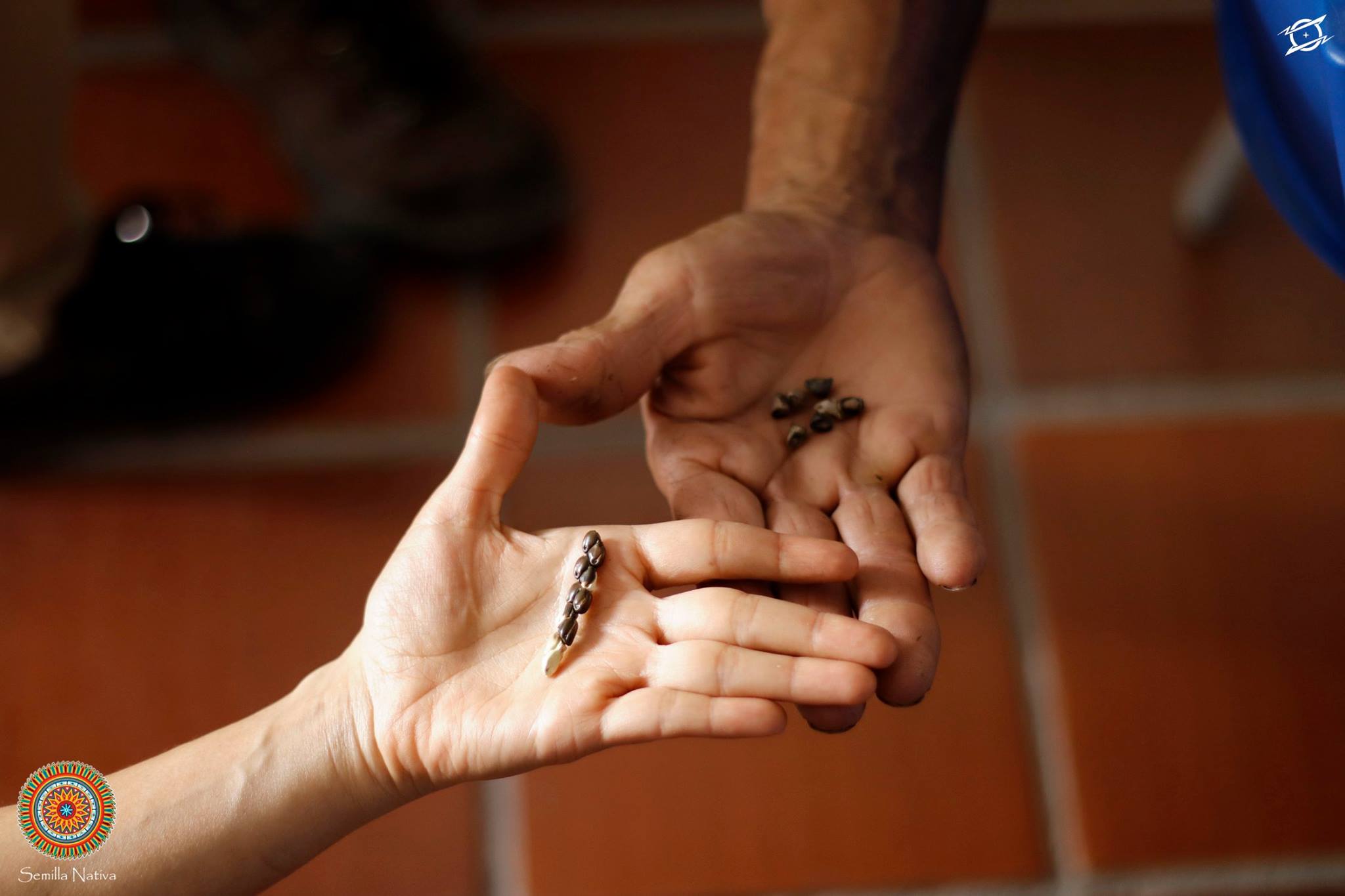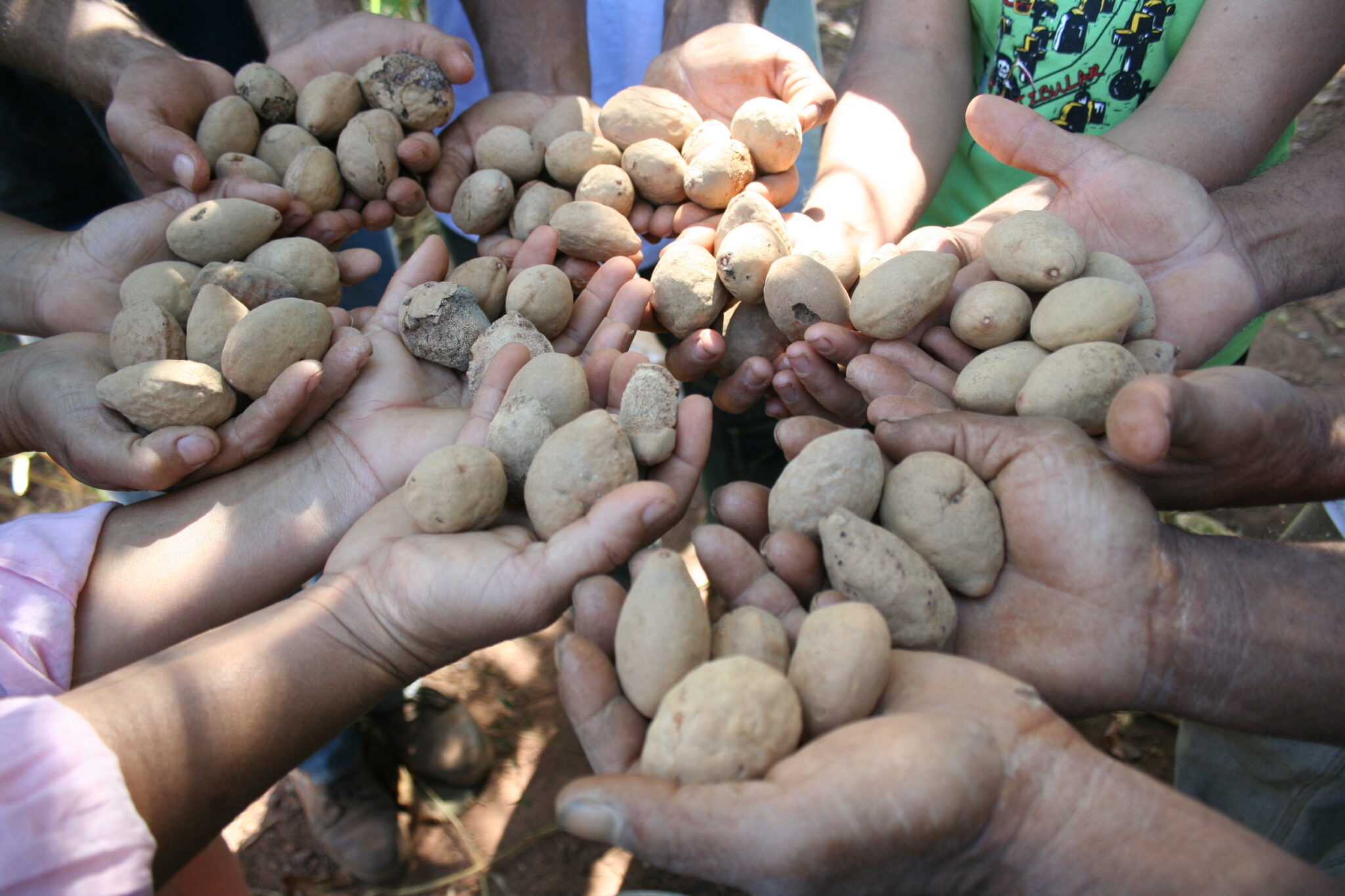In the Brazilian Cerrado, the world’s most biodiverse tropical savanna, traditional and Indigenous communities have been harvesting a bean pod called faveira for selling into markets for decades. However, local families earned very little money for their harvests due to low yields and the low quality of their products until the 2000s, when Cerrado Agroecological Development Center (CEDAC), an agroecology association that works to strengthen traditional communities and conserve socio-biodiversity, began working with small farmers to develop sustainable management practices.
CEDAC conducted an evaluation and proposed a management plan emphasizing sustainable fruit collection, elimination of child labor, equal rights for women in establishing and setting prices, and no more land burning, said Alessandra Karla da Silva, CEDAC Coordinator. “We began in 2002 with two native species and 300 families with participatory monitoring, with the objective of creating collective work for the sustainability of local peoples.”
CEDAC’s management protocol evolved into a Participatory Guarantee System (PGS), a locally focused, quality assurance system designed to make organic, healthy foods accessible to all. PGS are an alternative to third-party certification, which can be costly for small-scale farmers and consumers alike.
By 2012, CEDAC had created a PGS network covering 7,000 families, based on their sustainable management protocol. The Ministry of Agriculture accepted CEDAC’s collaborative certification program, or PGS, allowing families to sell their products with Brazil’s organic seal.
“Participatory guarantee systems, in addition to guaranteeing quality with a seal, generate local knowledge systems and empower local people to take control of information about methods that are fundamental for them to improve their quality of life,” said Laércio Meirelles, an agronomist, agroecologist, and facilitator of the Latin American PGS Forum.

The main idea is “a democratic and inclusive organic food market” that is accessible and affordable for everyone, including small family farmers and low-income urban populations worldwide, continued Meirelles. “We are not comfortable with the idea of producing healthy food that’s for the elite.”
Meirelles, Karla da Silva, and six Agroecology Fund grantee partners gathered to discuss their approaches to PGS on an Agroecology Fund webinar moderated by Agroecology Fund Advisor Georgina Catacora-Vargas, that was attended by nearly 600 people from 88 countries, and was translated in English, French, Spanish, and Portuguese. The webinar was the first in the Agroecological Economies webinar series that will continue throughout the year. The conversation focused on grassroots experiences with PGS as a way to strengthen access to markets and trust between consumers and producers. Participants described PGS with differing structures and norms depending on the needs and circumstances of local communities.
“What is now known as PGS began much earlier in the agroecological movement as a way of resisting expensive, one-sided international auditing systems that were alien to local realities. At the time, we called it participatory certification, bringing farming families to the forefront of the process. More than an economic tool, one of the principles at the root of the PGS is to build relationships of trust and knowledge exchange, involving producers and consumers.”
Angela Cordeiro, Co-Director, Agroecology Fund
First, how do you get PGS going?
Jayakumar Chelaton, founder of Thanal Trust in India, said that setting up a PGS is “not a complicated process.”
“It is a lot of participation and people taking leadership, coming together, doing collective work and also collectively bargaining for better prices for markets and access in markets.”
A minimum of five farmers are needed to form a group in India’s system, which was started by a civil society organization but is now run by the regional government, he said. The group signs a formal organic farming pledge and meets to determine its structure and processes. The government trains the group on organic production techniques and uploads the registration data to a digital platform. “Once the registration is completed, the farmer group can work on their own. If they don’t have the capacity, a Regional Council can help them,” said Chelaton.
Peer appraisals are carried out three times a year for any cropping season, and if everything is satisfactory, the group gets the certificate. Groups must meet every week or two to three times monthly, and every meeting should have 50 percent of the people attending. “We are making sure that there is a large participation of the democratic decision making in the group,” said Chelaton.
Rashida Kabanda, program assistant at Eastern and Southern Africa Small-scale Farmers’ Forum (ESAFF) Uganda, the largest small-scale farmer-led advocacy movement in Uganda, which represents more than 300,000 small-scale farmers, described a similar process. Fifteen to 20 people will typically come together to form a PGS, learn how it will function and register with ESAFF Uganda, she said. Then, the group works to design a shared vision after discussing the group’s environmental, political and economic situation.

“The whole group must agree that they’re looking for common organic markets, but the PGS is for everyone in the group. And then after that, they develop standards on how the PGS will work” and how they will govern it, said Kabanda. Group members pledge to follow the standards of the group and meet regularly to implement their plan.
“They follow up with each other to know that each of them is producing organic products,” said Kabanda. ESAFF Uganda provides organic certificates and seals and created a resource guide for any farmers interested in forming a PGS.
Different PGS Models
PGS programs share goals of expanding sustainable land use, helping farmers find markets and educating consumers, but they can serve different communities — from rural farmers and harvesters to urban communities to seed savers.
In Bolivia, AGRECOL Andes Foundation works with both rural farmers and urban farms, said Alberto Cardenas, who coordinates the Metropolitan program. “Unfortunately, the urban stain around the cities has been polluting the agricultural areas, so we’re implementing a metropolitan program to address this issue. It can be kitchen gardens, greenhouses, biointensive gardening… any other agroecological production method.”
Semilla Nativa Colombia meanwhile created a participatory process to guarantee that seeds are produced under agroecological mechanisms, are free of transgenics and copyrights, and are adaptable to local conditions. The group supports PGS through regional seed custodian schools. Researchers, farmers, and promoters work together on the implementation and expansion of PGS and also on developing technical capacities to resolve production problems, especially related to the new climate dynamics and government regulation, said Carol Rojas Vargas, ecologist, seed saver, and founder of Semilla Nativa.
“With the system, we guarantee that the seeds are produced by the families who are custodians of the seeds, and they are kept in these communities, seed houses, and by local farmers.”

The Dyikan Muras Seed Savers Network in Kyrgyzstan similarly developed a PGS for organic seeds to revitalize native vegetable production, said Aida Jamangulova, Director of the Agency for Development Initiatives in Kyrgyzstan. The network strives to improve seed quality and educate consumers about locally produced vegetable seeds.
“There’s a bias that they’re not as good as imported seeds,” said Jamangulova. “Another challenge is the lack of knowledge on seed production, especially among small-scale female farmers, who make up the majority of their 700 members.
In 2015, they began training women farmers in agroecological schools and cultivating seed plots. Farmers cannot sell native seeds, but they can share them and market the agricultural product that comes from the organic seeds.
The group implemented a PGS system after seeing India’s system, said Jamangulova. They developed PGS guidelines covering soil, biodiversity, irrigation, weeds, pests, diseases and other topics and created a PGS Committee, which includes three farmers, one consumer and one agronomist. Farmers are evaluated by the committee.
“We like the participatory approach,” said Jamangulova, who is now working on legislation for its seed PGS to be recognized by the government.
Government recognition
Brazilian law recognizes PGS, which, while not crucial for expansion, has helped CEDAC expand its reach. Close to 1,000 farm communities, spread across 5,000 hectares of organic agriculture and 875,000 hectares of sustainable harvesting in the Cerrado ecoregion of Brazil have developed PGS using CEDAC’s seals and scopes of certification for gender equity and agroecology — which now cover 173 native species and 100 forest products. Some of those PGS are even accepted by international markets, said Karla da Silva.
Similarly, partnering with the government of Kerala helped India’s PGS expand its reach 10-fold, said Chelaton, gain consumer confidence and address other challenges. “There was always the issue of funding, the issue of acceptance by the government agency implementing the Food Safety Act, and how to convince the health authorities that we are organic agriculture, what our program is and how we do it.”
AGRECOL Andes Foundation, working with local authorities, utilizes two seals for ecological production with the 68 PGS groups in its network. Additionally, PGS groups sell directly to local governments, such as school breakfasts, and sign agreements with municipal governments to organize local agroecology fairs, said Cardenas.
In Ecuador, the Agroecological Collective has found that “integrating local government authorities as well as schools or academic institutions” into PGS helps guarantee greater sustainability, said Roberto Gortaire Amézcua, founder and member of the Advisory Council of the Collective. Additionally, “local ordinances or legal frameworks that have been implemented allowing for local governments and ministries to invest in the cities and local political will,” help PGS succeed, he said.
While government support can help groups expand their reach, it isn’t always desired because there are trade-offs that come with government recognition, cautioned Mierelles. “It’s important to get state recognition without losing sight of the principle of simplicity,” for PGS he said. “We need simplicity because it will be understood by everyone.”
Regulators “demand forms to be filled out based on the social cultural norms of those bureaucrats as opposed to the peoples and communities who are working with these organic products,” he continued.
CEDAC, in fact, is facing several challenges, including getting traditional peoples’ landholdings legally recognized in government computer systems for non-timber products, as well as gaining acceptance for oral communications in the PGS registry.
Gaining Social Recognition
For Meirelles, social recognition is more important than legal recognition. “We need to create a strategy for communicating with society, communicating with people, for them to recognize the efforts we’re making to generate quality food and the effort we’re making to ensure the quality of those products.”
But getting that social recognition can be difficult, said Kabanda. “Finding markets can be hard so sometimes farmers end up selling at the same price as others who aren’t in the PGS,” she said. “They do marketing analysis, how they will find their markets for themselves and how they’ll convince these markets to buy their organic products.”
AGRECOL Andes Foundation works to gain social acceptance through both short market and long market circuits, said Cardenas. That includes local direct sales, house to house sales, a Whatsapp group, stores, mobile stores, fairs, and markets in urban and rural areas. They also sign agreements with municipal governments.
“There is good agroecological production. PGS is becoming more recognized,” he said. “We also work very closely with the consumers because they have to be involved in the PGS.” Activities include tastings that educate people about agroecological production and help consumers understand the problems of the rural people.
“You can break the myth that agroecological product is more expensive and help farmers to generate their own income,” said Cardenas.
You can access the full recording in multiple languages here. The next webinar in our Agroecological Economies series, How to Finance an Agroecology Transition, will take place on May 30th, 2024. Subscribe to our newsletter to be the first to know when registration begins.
LEARN MORE!
To learn more about our speakers’ work, we invite you to explore the following links:
- Agrecol ANDES (Bolivia)
- Centro Ecológico (Brasil)
- Centro de Desenvolvimento Agroecológico do Cerrado (Brasil)
- Colectivo Agroecológico del Ecuador
- Dyikan Muras (Kyrgyzstan)
- ESAFF Uganda
- Red Semillas Libres (Colombia)
- Thanal Trust (India)
OTHER RESOURCES
We invite you to take a look at the following resources produced by Agroecology Fund allies and grantees about Participatory Guarantee Systems:
- The Participatory Guarantee Systems (PGS) user guide for small-scale farmer groups, published by ESAFF Uganda (In English)
- Video “Growing Together: The Journey on Participatory Guarantee Systems (PGS)”, produced by ESAFF Uganda (In English)
- Sistema Participativo de Garantía de la calidad de semillas criollas y nativas para las Casas Comunitarias de Semillas en Colombia, published by Red Semillas Libres Colombia (In Spanish)
- Guía Metodológica para la implementación del proceso de acreditación a través del Sistema Participativo de Garantía, published by Agrecol Andes, Bolivia (In Spanish)
- Declarations of the Latin American PGS Forum (In Portuguese, Spanish and English)
- Declaration “30 Years of PGS Development: A Root and Branch Appraisal”, published by IFOAM (In English)
